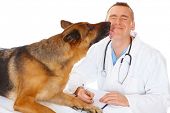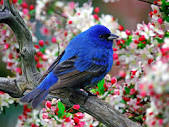How to take care of animals and birds – Learn how to look after animals around us including dogs and cats and birds, especially in summer and why it is important to do so.
How to take care of animals and birds !
While most of us can escape into air-conditioned rooms and chug endless glasses of something cold to beat the sweltering heat, our canine and feline companions and feathered friends don’t have that luxury.
Dogs, cats and birds have body temperatures that are normally higher than human beings. And, with built-in fur/feather coats, you can only imagine their discomfort as the mercury hits the mid 30s and even beyond in summer.
Pet dogs tend to suffer more than strays because the former are accustomed to air conditioned or fan-cooled rooms, and when they are taken out for walks they’re unable to adjust to the sudden change in the temperature.
These drastic shifts can result in a very sick animal. Even the healthiest of pets can suffer from dehydration, heat stroke and sunburn if overexposed to the heat and heat stroke can be fatal if not treated promptly.
How to take care of dogs especially in summer
Ideally you should avoid exposing your dog to direct sunlight for more than an hour a day. However, if he has to spend time in the open or outdoors, ensure that he has to spend time in the open or outdoors, ensure that he gets proper shade and lots of water to prevent heat exhaustion and dehydration.
Dogs tend to eat less in summer but they can end up expending more energy in an effort to lower their body temperature. Many pet owners tend to feed their wards with a lot of red meat loaves.
Instead, cut back on the meat and offer home-made meals like curd and rice which contain more water(70-80%) during summer. And keep the water bowl topped up. It is important to feed pets during the cooler part of the day and increase frequency of feeding to ensure that the animal gets adequate levels of energy, vitamins and minerals.
Hairy dog breeds (e.g. Poms) should be well clipped during summer as the thick coat makes them feel hot and irritable. The fur can also become a breeding ground for bacteria and parasites.
Remove the cushioning from your dog’s crate or bed. He may be more comfortable lying on the cooler bottom rather than on woolly carpeting or blanket.
Save exercise sessions for early morning or after the sun goes down. Your dog will appreciate the cooler temperatures and so will you!
Check the ground during walks. Concrete can get scorchingly hot for your dog’s pads. Touch the surface yourself if it’s too hot for you, it’s probably too hot for you, it’s probably too hot for your dog as well.
Things to do:
Keep your dog indoors when you go out for more than an hour. If possible, restrict, the pet to rooms with either air conditioning or a fan.
Dogs, like people, can get grumpy when it’s hot. Remind young children that their hugs may not be appreciated on stifling days.
Also try a gentle spray of cool water. Keep in mind that it may take you a few tries before your pooch enjoys the experience. If all goes according to plan, he’ll feel happy and refreshed once he’s nice and wet.
Watch out for heat stress
Pets that are more prone to a heat stroke than are Bulldogs, Staffordshire Bull Terriers, Boxers, Pugs, and any short nosed breed. If your dog is panting heavily salivating or foaming, these may be the first sign of a heat-related problem.
The hallmark of heat-stroke is severe central nervous system (brain) disturbance and is often associated with multi-organ dysfunction. Get your dog to a cool location, provide small drinks of cold water, and, if he doesn’t improve within a few minutes, contact your vet.
Diet no-nos
Remember that the food and drink offered to guests may be poisonous to pets. Keep alcoholic beverages away from pets, as they can cause intoxication, depression and coma.
Similarly remember that the snacks enjoyed by your human friends should not double up as treats for your pet; any change in diet, even for one meal, may give your dog severe digestive ailments. Prime culprits are raisins, grapes, onions and chocolates.
How to take care of cats especially in summer
Felines with flat faces e.g. Persin cats are more suspectible to heat stroke since they cannot pant as effectively. These cats, as well as those that are elderly, overweight, or have heart or lung diseases, should be kept cool in air-conditioned rooms or under the fan as much as possible.
Say no to tangles
Keeping your cat well groomed will help her hair do what it was designed to do: Protect her from the sun and insulate her from the heat.
Offer a pack!
Rubbing your feline down with a damp towel or placing a cold compress under his neck will help cool him off; so will immersing his feet in a tub of cool water.
He may fight at first, but most likely will appreciate it once he gets used to the idea. Wrap plastic bag of frozen peas in a towel, and place it in his bed for a cool spot to lie on. The peas will rearrange themselves to fit your feline’s contours and he’ll have a “custom-spa” for cooling off.
Cat sip
Make sure he has several bowls to cool water available. It doesn’t hurt to drop an ice cube in once in a while, not only to cool the water, but to pique Kitty’s interest in drinking.
Strangely enough, cats affected by external heat may refuse to drink water, exacerbating the problem of dehydration, so you may want to “force” water by using an eye dropper and syringe.
Be careful not to shoot the water down his throat as it can enter his lungs and/or cause choking. Just dribble a drop or two at a time in the corner of his mouth, which will help hydrate him and pique his interest to drink on his own.
Emergency
In case of a heat stroke, cool your cat down as quickly as possible by immersing him in cool water, and wrapping him with wet towels. Then get him to the vet immediately. This is a serious, potentially fatal condition.
Sun screen
If your cat is light skinned, apply sunscreen on her nose and ears to avoid sunburn.
Parasite proof
Ticks and fleas are a problem throughout the year but they are especially bad during summer months. Thoroughly check your cat for ticks and ensure you use a good quality flea control product on him.
How to take care of birds especially in summer
Birds, like other warm blooded animals, can overheat.
This most commonly occurs if:
The bird is kept in a cage in direct sunlight where there is no shade or shelter from sun.
The bird is in a vehicle with the windows closed or with inadequate ventilation.
The bird is wrapped in a towel (a common method of restraint) for too long a time period.
The bird is overweight ( a common cause for overheating)
The red signals are:
Panting (open-mouth breathing)
Holding the wings away from the body
Anxiety or agitation
Heat stoke which can be fatal, so prompt attention is required.
Offer some first aid till you get the bird to the vet:
Move it to a quite, cooler location and monitor it constantly.
Mist the bird with water until his skin is wet.
Keep the birds feet and legs moist with cool water.
Have you considered Pet insurance ?
It is important to get a tailored pet cover, if possible at the right price by comparing deals from leading insurers in your country of residence. Whether you have an indoor or outdoor cat, insure them to protect from any accidents or injuries that can occur, or health issues that could develop.
RELATED TOPICS
Best coffee brands in the world
Health insurance companies in NYC
Aging eyes and common vision problems
Best hospitals in Pennsylvania



